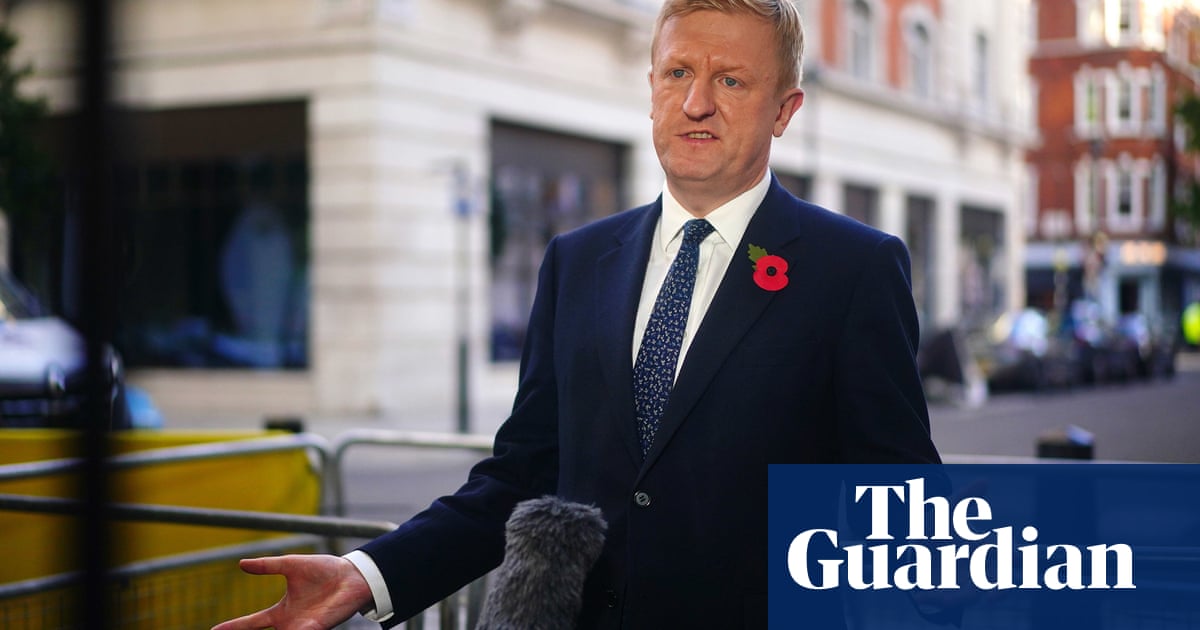
Conservative officials are coming under increasing pressure to remove the whip from an MP arrested over claims of rape and sexual assault, or ensure he does not come to Westminster, as it emerged one alleged offence is connected to someone under 18.
The man in his 50s has been bailed after being arrested on Tuesday over a series of alleged offences spanning seven years from 2002. One accusation concerns alleged abuse of position of trust, under a law that forbids sexual activity with anyone under 18 by an adult who is in a role of trust or authority over them.
The MP has not been suspended, lost the whip or been formally barred from the Commons. Chris Heaton-Harris, the Conservative chief whip, has asked him to stay away from the parliamentary estate.
Labour and trade unions have called for further action, saying that in any other work context a staff member accused of such offences would be suspended, with Labour arguing that naming the MP was a necessary consequence.
Tory whips are understood to be unwilling to take action to name the MP for fear of identifying the alleged victim or victims, who are granted anonymity in cases of sexual assault. But they have been assured by the MP that he will not come to parliament, and say they are confident he will comply.
Police do not usually name people who have been arrested but not yet charged, while a series of privacy based court cases mean media organisations now also rarely do so.
Boris Johnson’s press secretary rebuffed questions on Wednesday about the idea of proactively barring the MP from Westminster, adding that the prime minister only learned of the allegations on Tuesday, and was “shocked”.
However, Keir Starmer’s spokesperson said it “doesn’t seem to be sustainable to argue” that the MP should not lose the whip, even if that meant naming them.
“It’s a matter for the Conservative party what they do but our view is that given the nature of the allegations then the whip should be suspended and obviously at that point it would become public,” they said.
The GMB and Prospect unions, which represent parliamentary staff, have warned that a voluntary bar on the MP is insufficient, noting that Imran Ahmad Khan, the now-departed Tory MP for Wakefield, attended Westminster during investigations which led to him being convicted for of sexually assaulting a 15-year-old boy.
Last month, unions representing workers at Westminster urged the House of Commons procedure committee to hold an inquiry into whether all MPs under investigation over allegations of sexual harassment should be banned.
Dave Penman, general secretary of the FDA union that represents senior civil servants, said for most employers it would be a “no-brainer” for the person in question to be suspended.
“If it was any employer, you’d say OK there’s an allegation here; it’s going to be investigated; does that raise issues in relation to my other staff, in terms of health and safety?” he said. “Does it raise issues around the confidentiality of the process? You’ve got to balance all of those things before you make a judgment.”
He added: “In most cases, with an employer, if the police were involved in a situation such as this, it would cross the threshold, it would be a no-brainer.” MPs are not directly employed, either by their parties or the Commons authorities, however.
In another intervention, one of the lay members of the Commons standards committee, which deals with complaints about MP, said the situation with the MP was “a calamity”.
“It’s all very well to ask him to stay away, but what about the many constituency venues where that is not applicable?” Rita Dexter, a former deputy commissioner at the London fire brigade, said. “What consideration has been applied to those?”
Until 2016, MPs who were arrested were automatically named by parliamentary authorities. After concerns about privacy issues, they are now consulted, and named only if there is a reason of “parliamentary privilege or constitutional significance”, on the basis that this brings their treatment into line with that of others.












